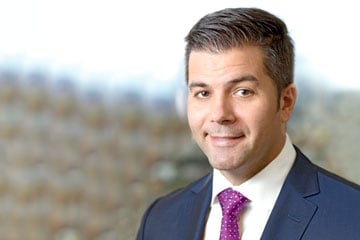
LawPRO has turned to the Supreme Court of Canada for help in its latest, and possibly final, attempt to recover almost $200,000 from a Hamilton, Ont. man who spent mortgage funds mistakenly advanced to him by his lawyer.

LawPRO has turned to the Supreme Court of Canada for help in its latest, and possibly final, attempt to recover almost $200,000 from a Hamilton, Ont. man who spent mortgage funds mistakenly advanced to him by his lawyer.
The homeowner, Mauricio Rodriguez, later filed for bankruptcy, but LawPRO succeeded in convincing a Superior Court judge that an outstanding default judgment against him should survive his discharge under s. 178 (1)(d) of the Bankruptcy and Insolvency Act.
While discharge from bankruptcy generally releases an individual from all debts and liabilities, that provision of the act exempts those arising out of “fraud, embezzlement, misappropriation or defalcation” while the person was acting in a fiduciary capacity.
However, in Lawyers’ Professional Indemnity Company v. Rodriguez, the Court of Appeal for Ontario overturned the lower court ruling, finding that the application judge inappropriately relied on “extraneous evidence” to conclude that the judgment should survive bankruptcy.
Kim Ferreira, counsel for appellants LawPRO and First Canadian Title Insurance Company, says LawPRO has now sought leave to appeal the judgment to the nation’s top court.
“We believe the appeal court decision raised a new policy ground for consideration with respect to an application under s. 178 (1)(d) and the ability of a party to recast an initial judgment, especially in light of the fact that this was a default proceeding,” says Ferreira, a lawyer with Mississauga, Ont. firm Speigel Nichols Fox LLP.
Ron Allan, who acted for Rodriguez, says both he and his client were “very pleased” with the result.
“If the original decision was to stand, it would have opened up the possibility for parties to get around limitation periods by later relying on extraneous evidence, which would be potentially unfair,” says Allan, a lawyer with Vitulli Law Group in Hamilton, Ont.
According to the appeal court decision, the case has its roots in Rodriguez’ July 2003 deal to buy a property in Hamilton, for which he secured a mortgage from President’s Choice Financial for $174,000. When he sold the house a few months later, PCF asked Rodriguez’ lawyer to hold back $145,000 from the sale proceeds to guarantee it was paid and the mortgage discharged, but the lawyer instead mistakenly sent a cheque for almost $180,000 to Rodriguez, which included the funds he was supposed to hold back.
By the time the lawyer realized, Rodriguez told him he had already spent the funds. In October 2005, LawPRO and FCT launched a claim against Rodriguez, seeking to enforce their rights under the mortgage, but they omitted any details about the mistakenly sent cheque. They were granted default judgment in early 2006 for $192,000 after Rodriguez failed to defend the action.
Rodriguez made his assignment in bankruptcy in 2009, but neither LawPRO nor FCT found out until after he was discharged, when Rodriguez’ lawyer asked them to lift a writ of seizure and sale related to their default judgment against him.
In 2017, the professional indemnity and title insurers asked a judge to declare that the default judgment survived Rodriguez’ bankruptcy under s. 178(1)(d), filing an affidavit in support that laid out the chain of events involving the real estate lawyer and the cheque.
Ontario Superior Court Justice Michael Gibson granted the application, relying on the 2016 decision of the B.C. Court of Appeal in Toth v. Lehman, to find that he was entitled to “look to the judgment, the evidence that would have been led had the action been defended, and that which has been led in this application,” when assessing whether the debt should survive.
However, the appeal court found that Gibson had erred in his reading of Toth, preferring to adopt the approach taken by the same court in an earlier 2015 decision, H.Y. Louie Co. Limited v. Bowick.
This story was corrected to reflect that only LawPRO will be seeking leave to appeal the judgment to the Supreme Court of Canada, and not the First Canadian Title Insurance Company.